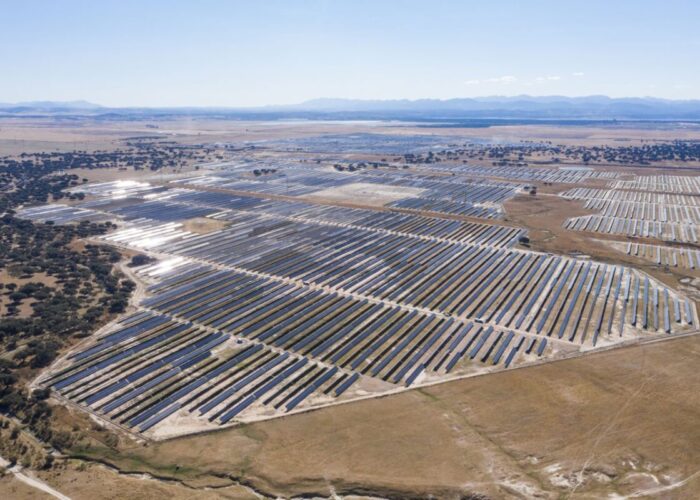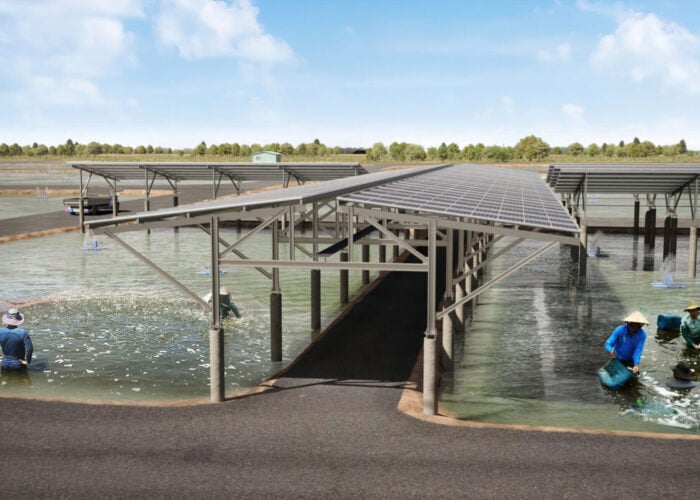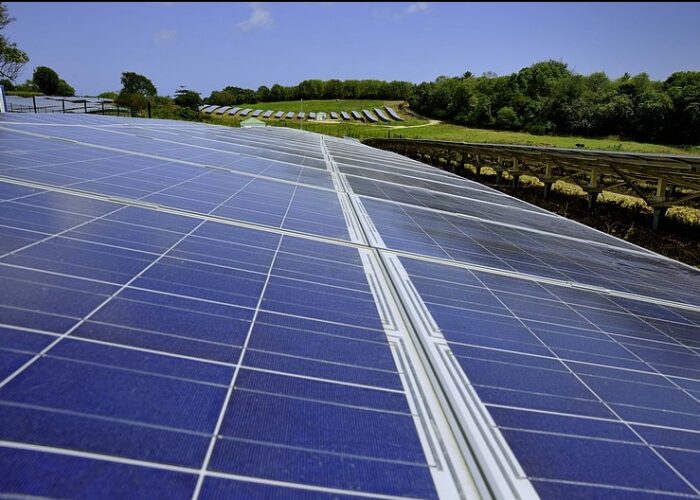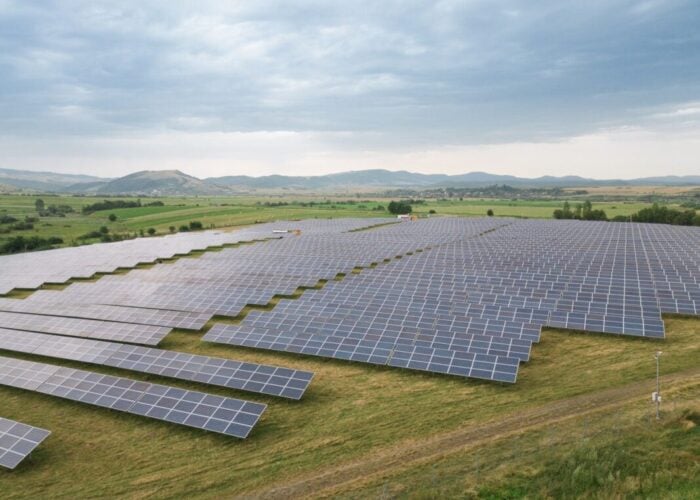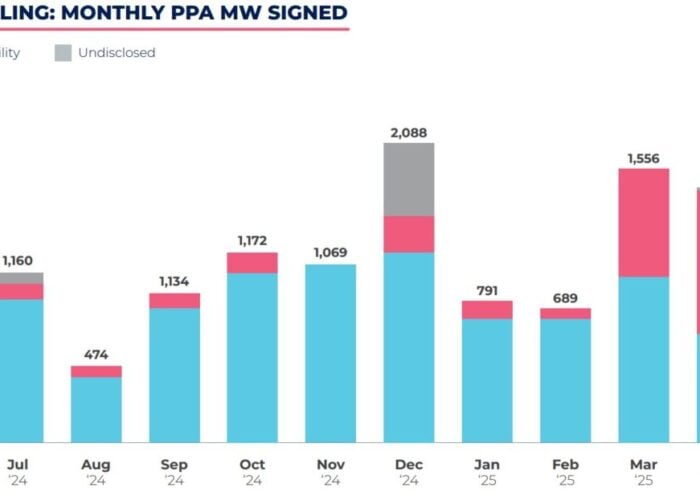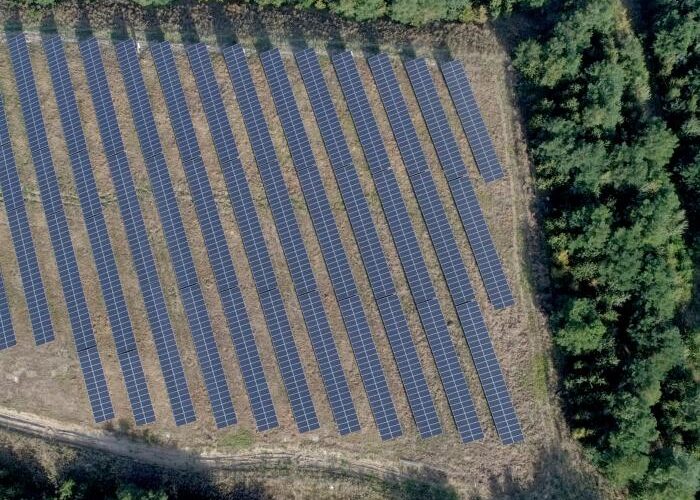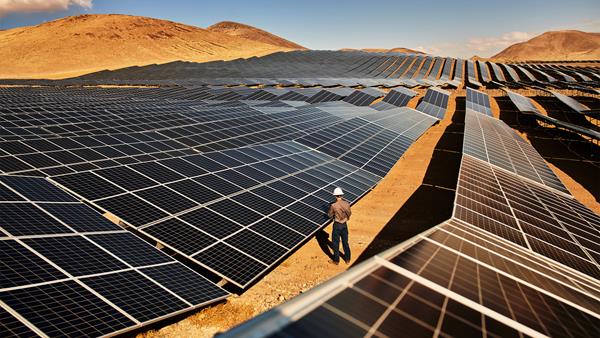
Tax certainty for solar projects included in Massachusetts Climate Bill
18 March 2021: Massachusetts’ House of Representatives has passed a climate bill that includes several measures to boost the state’s renewable energy capacity and tax clarity for solar projects.
Unlock unlimited access for 12 whole months of distinctive global analysis
Photovoltaics International is now included.
- Regular insight and analysis of the industry’s biggest developments
- In-depth interviews with the industry’s leading figures
- Unlimited digital access to the PV Tech Power journal catalogue
- Unlimited digital access to the Photovoltaics International journal catalogue
- Access to more than 1,000 technical papers
- Discounts on Solar Media’s portfolio of events, in-person and virtual
The bill, An Act Creating a Next Generation Roadmap for Massachusetts Climate Policy, outlines key policies that would accelerate the transition to renewable energy and offer tax breaks for utilities and entities that adopt small solar systems over the coming decade. Senators advanced the bill in a 39-1 vote on Monday 15 March, before House members did the same in a 146-13 vote.
If signed by Governor Charlie Baker, it would relax the state’s net metering thresholds for solar PV, enabling large businesses to sell wholesale rooftop solar power at retail rates. It also clarifies how taxes are assessed on wind, solar and energy storage systems, provides tax breaks for households and small businesses that install behind-the-meter systems and incentivises entities within the Solar Massachusetts Renewable Target (SMART) programme to serve lower income areas.
The House of Representatives passed the bill including its tax clarity policies on 17 March after it was put forward at the start of 2021.
David Gahl, senior director of state policy for the East at the Solar Energy Industries Association (SEIA), said that the legislation closes a loophole that would “essentially double tax renewable energy customers”.
The legislation, he said, provides “positive steps” for the state’s solar industry.
Indiana utility signs Invenergy for 250MW solar project
18 March, 2021: Utility Northern Indiana Public Service Company (NIPSCO) has signed a build transfer agreement with developer Invenergy to construct a 250MW solar project in the state.
The Fairbanks Solar project, located in Sullivan County, Indiana, will be jointly owned by Invenergy and NIPSCO when it is completed. The project is expected to come online in fall 2023.
It is hoped the project will inject US$110 million into the local economy via tax revenues and landowner payments, and will create roughly 250 jobs during construction.
The solar project adds to two wind farms already owned by NIPSCO and eight renewable energy projects the utility has previously announced as part of its plan to eliminate coal from its business operations by 2028. It will announce further renewables projects over the next few weeks.
Ted Romaine, Invenergy’s senior vice president of origination, said the partnership represents a “significant step” in Indiana’s energy transition.
SunPower introduces new ‘ultra-low APR’ loans for residential solar and storage
18 March 2021: US supplier SunPower has unveiled an “ultra-low” annual percentage rate loan (APR) for its residential solar and energy storage customers, including 0.99% for a 15-year loan and 1.99% for a 25-year loan.
The loans, which are available in 17 US states and offered through Technology Credit Union, are attached to Sunpower’s Equinox home solar and SunVault battery storage systems. It amounts to customers being able to purchase a 4kW solar system for around US$72 per month.
Norm Taffe, executive vice president at SunPower, said the loan offering would enable to access “better, cleaner, more reliable energy…while making it possible to save money on electricity bills with a solar system they own.”
Apple-backed 61MWdc Nevada solar farm comes online
17 March 2021: EPC contractor McCarthy Building Companies’ Renewable Energy & Storage has completed the Turquoise Solar project in Washoe County, Nevada. The 61MWdc project will be used to power tech giant Apple’s data centre in the state.
Apple secured a 25 year power purchase agreement (PPA) on the Turquoise solar plant, with a base price of US$30.99 per year MWh escalating at two percent per year. The project is expected to generate 115,545MWh in its first year.
The plant itself, which is owned by Greenbacker Renewable Energy Company (GREC) sits in the Reno Technology Park, a 2,200-acre industrial park shared between Apple and Turquoise Solar. It is the largest operational project in GREC’s portfolio, having acquired it from developers Estuary Capital Partners and Sumitomo Corporation of Americas in 2019.
The site was previously intended for natural gas-fired power generation, but Estuary considered the site better suited to solar, said its president Jill Daniel, “given Apple’s industry-leading commitment to the environment”. The company pledged to run on 100% renewable energy back in 2016, and has done so for three years.

